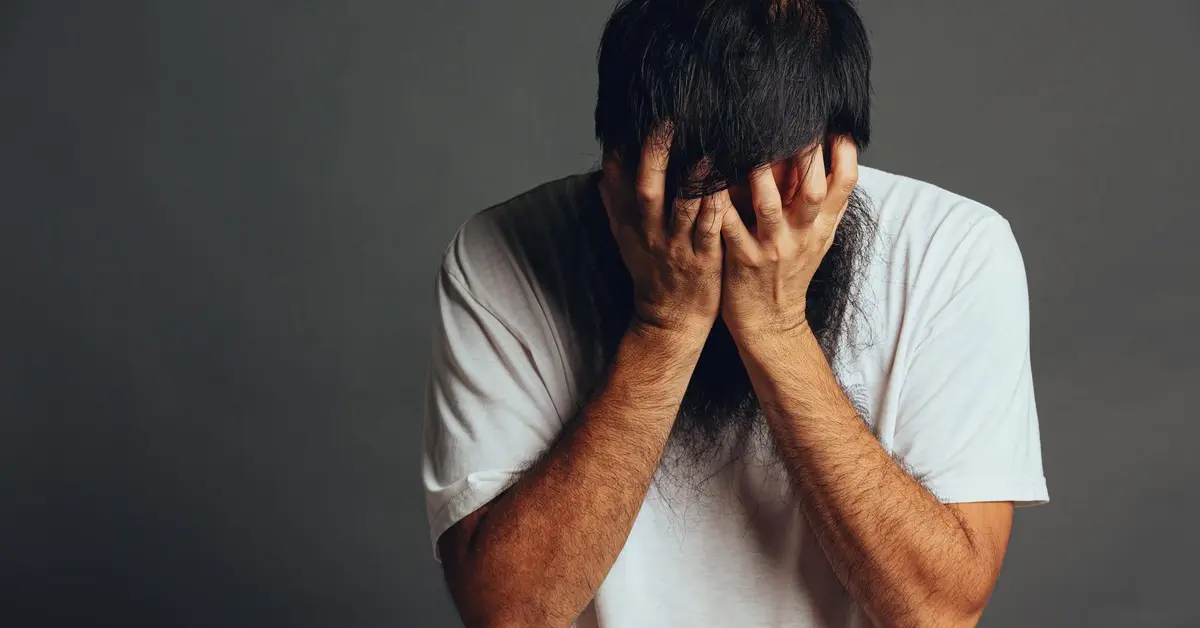This article was reviewed by Dr Renee Tan Huey Jing.
In our fast-paced modern lives, we all experience stress and tension. But when these feelings become abnormally intense, persistent, and begin to affect your daily life, work, and relationships, it may be more than just ‘overthinking’; it could be a sign of anxiety. So, can you self-assess for anxiety, and if so, how should you manage it?
Anxiety Self-Assessment: A Simple Guide
While a professional diagnosis must be made by a doctor, you can perform a preliminary self-assessment by observing your physical and mental responses. Review the common symptoms of anxiety below to see if you identify with any of them.
Physical Symptoms: Your Body is Sending a Warning
- Rapid heartbeat, shortness of breath, or difficulty breathing: You might feel a tightness in your chest or a struggle to catch your breath.
- Muscle tension and trembling: Especially in the neck and shoulders, often feeling stiff and sore.
- Sweating, dizziness, or nausea: Your palms may sweat, and you might feel a sensation similar to motion sickness.
- Sleep disturbances: You may find it difficult to fall asleep, wake up during the night, or have vivid dreams, and still feel tired upon waking.
Mental and Emotional Symptoms: What You’re Feeling Inside
- Persistent worry and fear: You may have constant, uncontrollable negative thoughts about the future, often worrying about “what if…?” scenarios.
- Restlessness and difficulty concentrating: You feel on edge and find it hard to focus on work or studies.
- Emotional outbursts: You might become irritable easily or feel an inexplicable sadness.
- Avoidant behaviour: You start to avoid certain places or activities because they trigger your anxiety.
If these symptoms have persisted for more than six months and are significantly affecting your quality of life, you should seek professional help.
How to Manage Anxiety
Self-assessment is the first step, but what you do next is key. Remember, anxiety is a treatable condition, and the sooner you intervene, the better the outcome. Here are several scientifically backed and effective management methods.
1. Seek Professional Medical Help
This is the most crucial step. A professional psychologist or psychiatrist can:
- Provide an accurate diagnosis: Ruling out other potential conditions.
- Create a personalised treatment plan: This may include psychological therapy (such as Cognitive Behavioural Therapy, or CBT) and medication.
Cognitive Behavioural Therapy (CBT) helps you identify and change the negative thought patterns that contribute to your anxiety.
2. Daily Self-Care and Management
In addition to professional treatment, you can ease symptoms through some daily habits:
- Regular exercise: Aim for at least 3-5 sessions of 30 minutes of exercise a week, such as walking, jogging, or swimming. Exercise is highly effective at releasing stress and improving mood.
- Mindfulness and meditation: Spending 10-15 minutes a day on meditation can help you focus on the present moment and quiet your inner turmoil.
- Healthy diet and sufficient sleep: Avoid excessive caffeine and sugar, ensure you get 7-8 hours of quality sleep each night.
- Build a social support network: Confide in someone you trust—whether a close friend, family member, or another supportive person. You don’t have to face this alone.
Conclusion
It’s possible to self-assess for anxiety by paying attention to the signals your mind and body are sending. This is only the first step, however. True management requires you to bravely face the situation and seek professional help. Anxiety is not something to be afraid of; it’s a signal that it’s time to pause and care for your own inner well-being.
Remember to take care of yourself, starting from this moment.
Sources
- National Institute Of Mental Health, Anxiety Disorders (https://www.nimh.nih.gov/health/topics/anxiety-disorders)
The information provided in the articles is intended solely for educational purposes and is not a substitute for professional medical advice, diagnosis, or treatment. Always seek the guidance of a licensed healthcare professional if you are feeling unwell or have any medical concerns.
This article was reviewed by Dr Renee Tan Huey Jing.
Dr Renee Tan Huey Jing is a highly experienced psychiatrist in Malaysia, specialising in mental health and psychiatric disorders. She has extensive expertise in treating conditions such as post-traumatic stress disorder (PTSD), major depressive disorder, childhood trauma, and anxiety disorders.
Dr Tan pursued her medical degree at the Royal College of Surgeons in Ireland (RCSI) from 2002 to 2006, earning an MB BCh BAO qualification. Her passion for psychiatry led her to further her studies, obtaining a Master’s degree in Psychological Medicine from the University of Malaya in 2015.
Disclaimer: 365Asia aims to provide accurate and up-to-date information, our contents do not constitute medical or any professional advice. If medical advice is required, please consult a licensed healthcare professional. Patient stories are for general reading. They are based on third-party information and have not been independently verified.



